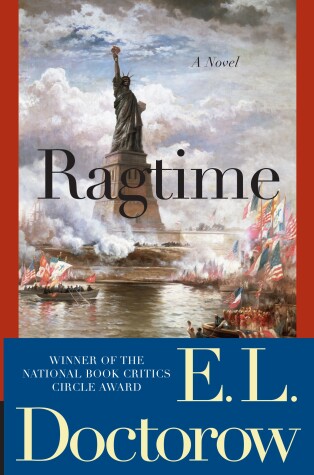Reviewed by clq on
I find that books are generally either easy to read, or require a certain amount of concentration. This book fell between the two in that I found it very easy to read and to take in, but that it required a good deal of focus to actually appreciate. At one point I backtracked and re-read a bunch of chapters when I was in a more focused state of mind, finding that they worked much better the second time around.
The story of Ragtime is set primarily in New York, and for a good deal of the book the narrative skips around liberally between plots which predictably end up bumping into each other. The style of the storytelling seems to be set in stone throughout the book, while the tone still manages to vary, sometimes rather abruptly, between being deathly serious and emotional to being light and comical. This works really well, and is probably the reason the book can get away with visiting as many bases as it does without it seeming contrived, touching upon various flavours of politics, racism, love, poverty, desperation, and so on.
Unfortunately I felt that the book took more than it gave. Despite my best efforts I never became as immersed in it as I think I needed to be to really like it. Personally I found Ragtime to be well-written and perfectly ok, but that's about it.
Reading updates
- Started reading
- 19 February, 2013: Finished reading
- 19 February, 2013: Reviewed
